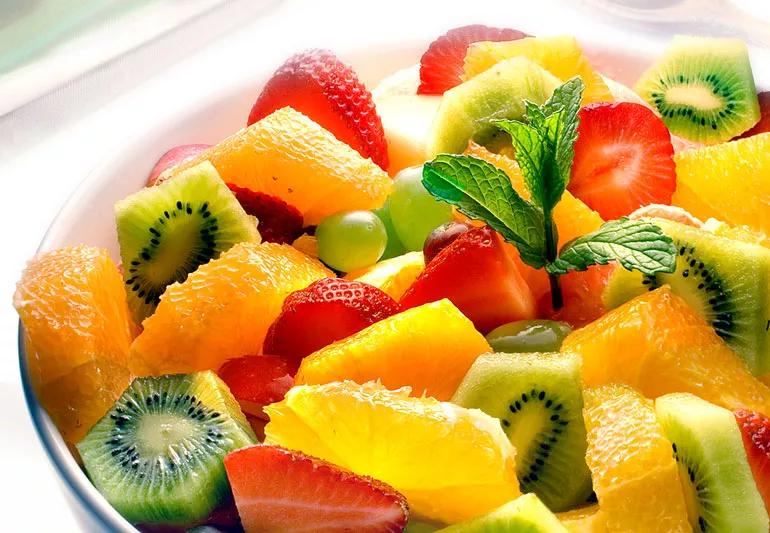This fruit-based diet is high in sugar & lacks nutrients

Dietitians can provide great advice when it comes to losing weight, nutritional plans and addressing lifestyles factors about a patient’s wellness goal.
Advertisement
Cleveland Clinic is a non-profit academic medical center. Advertising on our site helps support our mission. We do not endorse non-Cleveland Clinic products or services. Policy
In fact, many people turn to dietitians when they’re curious about trying a plant-based, vegan or vegetarian diet. Other folks are looking for low-carb, keto or high-protein diets. And occasionally, some people ask about the fruitarian diet, which involves eating primarily fruits.
But according to registered dietitian Kate Patton, MEd, RD, CSSD, LD, the fruitarian diet is one of the most restrictive diets out there and most importantly, is not often recommended or endorsed.
“The fruitarian diet has a big risk of malnourishment,” she explains “Because of this, the diet is not usually recommended by dietitians because it’s just not part of a balanced eating plan.”
People were likely looking to eat whole, natural foods from the earth, so they turned specifically to fruits. But because of the restriction and malnourishment factor, the diet has (thankfully) decreased in popularity over the years.
Fruits are packed with natural sugar in the form of fructose and many vitamins and antioxidants, including vitamin C and beta-carotene. Some research even shows fruits can reduce the risk of cancer and other chronic diseases.
So generally speaking, eating fruit (in moderation) is healthy for you and it’s often recommended to increase your intake of whole fruit (but not fruit juice) when you’re looking to revamp your diet and eat healthier. Plus, fruit makes a great addition to meals as a natural sweetener and is a good snack to grab instead of chips or cookies.
Advertisement
That being said, even when you consider the benefits of fruit and why it should be included as part of a balanced diet, people should generally keep their fruit intake to no more than 25% to 30% of their diet to avoid nutritional imbalances.
A better dietary approach to being a fruitarian is the Mediterranean diet or a pescatarian diet (which is a vegetarian diet that includes fish). Both include a strong base of fruits and vegetables, along with other plant based foods like nuts, seeds, legumes, plant based oils and whole grains. Both diets limit dairy and sugar.
But what about weight loss on the fruitarian diet?
“You might lose weight on the fruitarian diet, but I don’t consider this a true benefit, because you are likely losing muscle,” says Patton.
Instead, dietitians always recommend choosing an eating style or diet that you can stick with long-term.
Fruit-based diets can be very restrictive and can cause several health problems:
Before you start any new diet or nutrition program, Patton recommends talking with your doctor or meeting with a dietitian to discuss your goals and lifestyle. Together you can craft an eating plan that you’re more likely to stick with long-term.
Advertisement
Learn more about our editorial process.
Advertisement

Alternating between periods of eating and fasting may benefit your health

This plant-based eating plan focuses on lowering cholesterol, making it a great companion to the Mediterranean diet

Choose foods that are low in fiber and easy to chew and swallow

The flexible eating plan aims to boost your brain health by focusing on plant-based foods and limiting saturated fat

Designed to lower your blood pressure, this eating plan focuses on heart-healthy foods like whole grains, fruits and vegetables

Pescatarians don’t eat poultry, game or red meat, but they do eat fish and seafood, dairy and eggs

This eating style has many health benefits, including weight loss, an improved microbiome, and increased nutrient and mineral consumption

Research shows promising results from options like the DASH diet and Mediterranean diet

Wearing a scarf, adjusting your outdoor activities and following your asthma treatment plan can help limit breathing problems

Your diet in the weeks, days and hours ahead of your race can power you to the finish line

When someone guilt trips you, they’re using emotionally manipulative behavior to try to get you to act a certain way